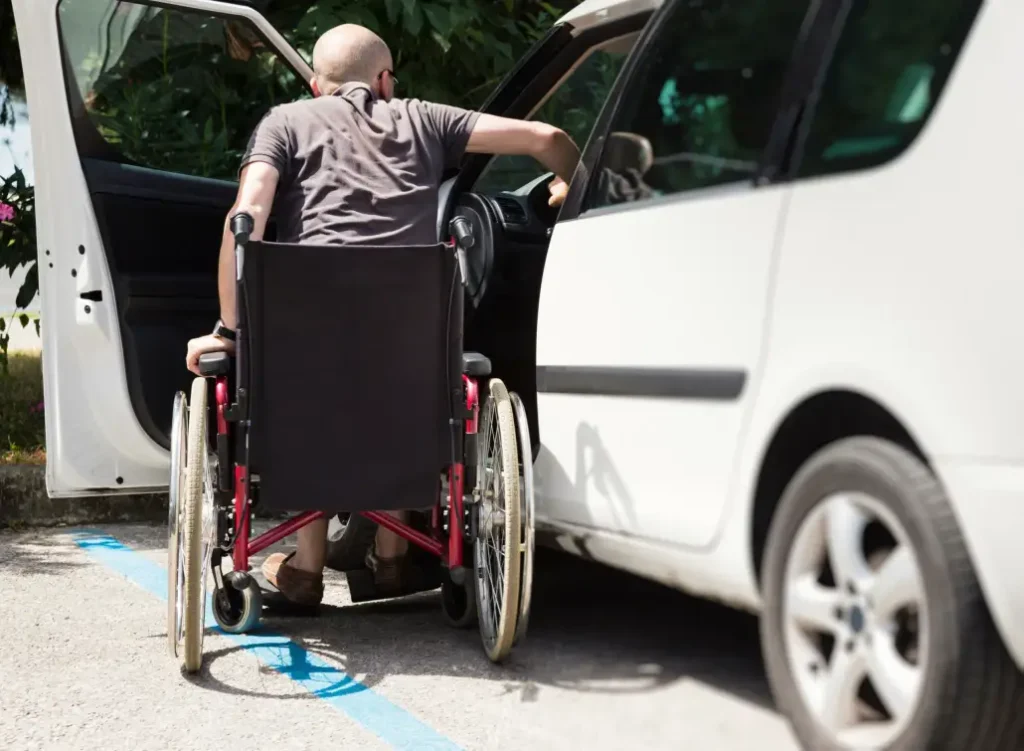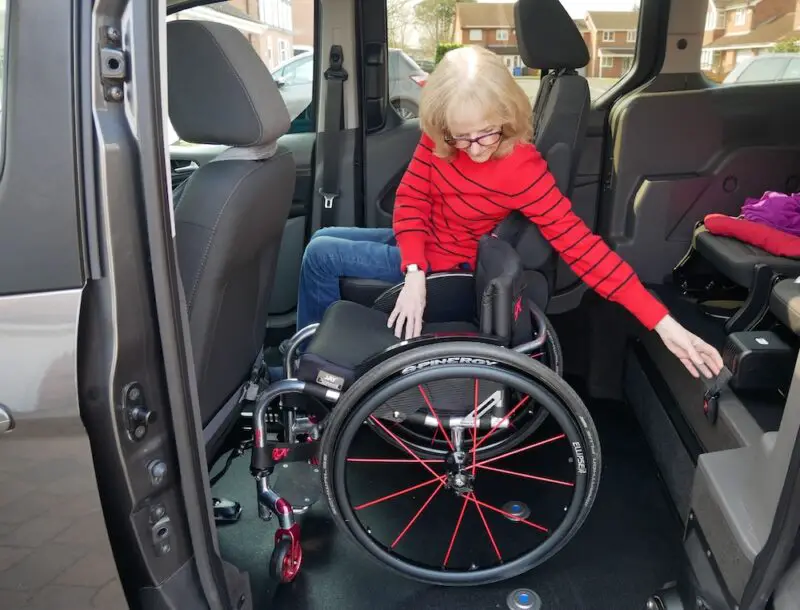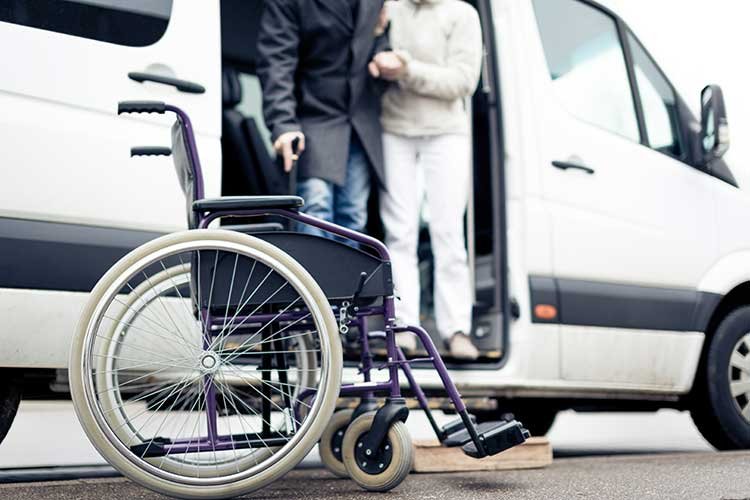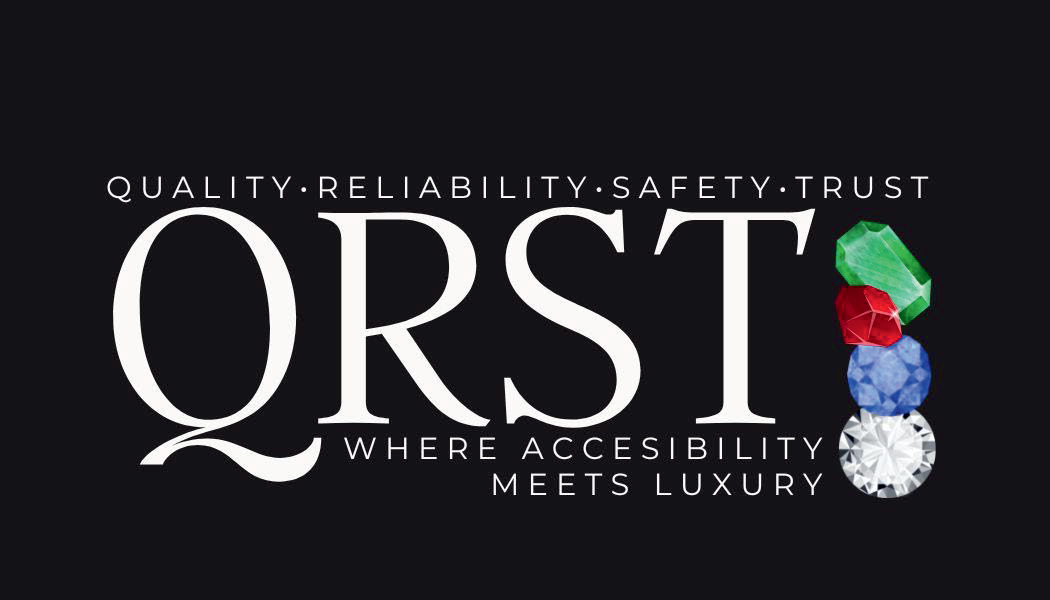If you’re in Maryland and your wheelchair-accessible vehicle is experiencing transmission issues, you’re not alone. It can be quite frustrating when your mobility is compromised, but worry not! In this guide, we’ll discuss common transmission problems that may affect your wheelchair-accessible vehicle and how to troubleshoot them. From sudden jerks to transmission fluid leaks, we’ll cover it all. QRST Wheelchair Transportation will also provide tips on finding reliable mechanics and services in Maryland to ensure your vehicle gets the care it needs. So, let’s roll up our sleeves and dive into the world of troubleshooting transmission issues in wheelchair-accessible vehicles!
Weird Jerking or Shifting:
When you’re behind the wheel of your wheelchair-accessible vehicle in Maryland, ensuring smooth wheelchair transportation services, and it starts to exhibit some weird jerking or shifting, it can be pretty unsettling. You might feel those sudden, unexpected jolts or hesitation when accelerating. Often, the culprit here is your vehicle’s transmission. Start by checking your transmission fluid level. Low fluid can be a primary cause of these symptoms, as it’s essential for proper gear shifting. If you’re low on fluid, top it up to the recommended level. If the issue persists, or if your fluid level is normal, it’s a good idea to have a qualified mechanic take a look. They can perform a thorough inspection to pinpoint the exact problem and prevent it from getting worse. Addressing these issues promptly ensures your vehicle stays reliable and your mobility uninterrupted.

Strange Noises:
We all know that sinking feeling when our wheelchair-accessible vehicle in Maryland starts making strange noises. It can be a clunk, a whine, or even a mysterious grinding sound, and these noises are a clear signal that something might be off with your vehicle’s transmission. Ignoring these sounds isn’t a good idea because they often indicate an underlying problem. The best course of action is to get your vehicle checked by a qualified mechanic. They have the expertise to diagnose the source of these unusual sounds and recommend the necessary repairs. Addressing strange noises early on can save you from more significant and costly issues down the road, not to mention ensuring a safer and smoother ride for you or your loved ones in a wheelchair.
Fluid Leaks:
When you notice fluid leaking from your wheelchair-accessible vehicle in Maryland, it’s not a sight you want to see, especially when exploring wheelchair-accessible waterfalls and natural wonders. Transmission fluid leaks can be a common issue, and they’re often red or brown in color. These leaks can lead to decreased transmission performance and even serious damage if left unattended. If you spot those telltale puddles underneath your vehicle, it’s time to take action. Start by identifying the source of the leak, but remember not to touch the fluid directly as it could be hot or corrosive. Then, consult a professional mechanic who specializes in transmission repairs. They can inspect the issue, fix the leak, and ensure your transmission is running smoothly. This proactive approach not only prevents costly repairs but also maintains your mobility and safety in your wheelchair-accessible vehicle.
Warning Lights:
- Dashboard Lights:
- Modern vehicles come equipped with onboard diagnostic systems that can trigger warning lights on your dashboard when they detect transmission problems.
- Pay Attention:
- Keep an eye on your dashboard for any warning lights related to the transmission. It could be a little gear symbol or a “Check Engine” light.
- Don’t Ignore Them:
- Never ignore these warning lights. They are your vehicle’s way of telling you that something’s amiss in the transmission.
- Seek Professional Help:
- If you see a transmission-related warning light, it’s time to consult a professional mechanic.
- They can run diagnostic tests to determine the exact issue and provide guidance on necessary repairs.
- Prompt Action:
- Addressing the problem promptly can prevent further damage to your transmission and ensure your wheelchair-accessible vehicle remains safe and reliable.

Slipping Gears:
Experiencing slipping gears in your wheelchair-accessible vehicle can be unnerving, especially when you rely on it for mobility in Maryland’s top destinations for wheelchair users. Slipping gears occur when your transmission unexpectedly shifts in and out of gear, causing a loss of power and control. It’s crucial not to ignore this issue, as it can lead to safety concerns. If you encounter this problem, don’t wait around – schedule a visit to a qualified mechanic who specializes in transmissions. They can inspect your vehicle and determine whether the issue is due to low transmission fluid, a worn clutch, or other transmission-related problems. Prompt action ensures your vehicle remains dependable and safe, so you can continue to navigate Maryland with confidence.
Choosing a Reputable Mechanic:
- Certifications and Experience: Look for mechanics or auto repair shops that specialize in wheelchair-accessible vehicles or have experience in working on them. Certification from organizations like the National Institute for Automotive Service Excellence (ASE) is a good sign of their expertise.
- Recommendations: Ask friends, family, or fellow vehicle users for recommendations. Personal experiences can be invaluable in finding a trustworthy mechanic.
- Online Reviews: Check online reviews on platforms like Google, Yelp, or the Better Business Bureau to gauge customer satisfaction and the shop’s reputation.
- Communication: Reach out to the mechanic or shop and ask questions. A professional and transparent approach to communication can instill confidence.
- Quotes and Estimates: Obtain written estimates for the required repairs. This helps you understand the cost and ensures there are no surprises later.
- Warranty: Inquire about warranties on both parts and labor. A reputable mechanic should stand behind their work.
Maintenance Matters:
When it comes to keeping your wheelchair-accessible vehicle in Maryland running smoothly, remember that maintenance matters – a lot. Regular upkeep is your best defense against unexpected transmission problems. Follow your vehicle’s maintenance schedule diligently, which typically includes periodic transmission fluid changes and inspections. Over time, old fluid can break down and lose its effectiveness, potentially leading to transmission issues. So, make sure you stay on top of these routine tasks, and if you ever miss a service interval, don’t hesitate to catch up. By maintaining your vehicle, you not only prevent common transmission problems but also ensure your mobility remains reliable, keeping you on the go in Maryland without any unexpected hiccups.
Warranty and Insurance:
Don’t forget to consider your warranty and insurance when dealing with transmission issues in your wheelchair-accessible vehicle in Maryland, crucial for troubleshooting wheelchair vehicle exhaust smell and fumes. If your vehicle is still under warranty, be sure to follow the guidelines provided by the manufacturer or dealership for transmission repairs. This can help you save money on covered repairs. Additionally, check your insurance policy – some insurance plans may cover transmission issues, so be sure to understand what’s included in your coverage. Knowing the specifics of your warranty and insurance can make a significant difference in how you address and manage any potential transmission problems, allowing you to navigate Maryland with peace of mind.
Get a Professional Diagnosis:
When it comes to dealing with wheelchair-accessible vehicle transmission issues in Maryland, getting a professional diagnosis is a non-negotiable step. If you’ve noticed any strange symptoms or warning lights related to your transmission, it’s essential to consult a qualified mechanic who specializes in transmissions. They have the knowledge and tools to conduct diagnostic tests, pinpoint the exact issue, and recommend the most appropriate and cost-effective solutions. Attempting to diagnose or fix transmission problems without expert help can lead to costly mistakes. So, don’t play the guessing game when it comes to your mobility – rely on a professional diagnosis to ensure your vehicle remains safe and reliable on the roads of Maryland.

FAQ’s:
How do you secure a manual wheelchair in a van?
To secure a manual wheelchair in a van, you typically use four-point tie-down systems, including straps and clamps, to anchor the chair securely to designated anchor points in the vehicle.
How do you make a van wheelchair accessible?
Converting a van to be wheelchair accessible typically involves installing a ramp or lift, lowering the floor, and adding secure wheelchair tie-downs or docking systems.
What is handicap facilities?
Handicap facilities, also known as accessible facilities, are designed to accommodate individuals with disabilities, providing features such as ramps, wider doorways, and accessible restrooms to ensure equal access and usability for all.
How do you prevent slipping in a wheelchair?
To prevent slipping in a wheelchair, use non-slip wheelchair cushions, ensure proper seating positioning and stability, and consider adding anti-slip covers to the wheelchair’s hand rims.
What is wheelchair accessibility called?
Wheelchair accessibility is often referred to as “ADA compliance” in the United States, as it follows the Americans with Disabilities Act (ADA) guidelines for creating accessible spaces for individuals with disabilities.
CONCLUSION:
In conclusion, addressing transmission issues in your wheelchair-accessible vehicle is crucial for maintaining your mobility and safety in Maryland. Whether it’s strange noises, slipping gears, or warning lights, don’t ignore the signs. Timely maintenance, professional diagnosis, and choosing reputable mechanics are essential. Remember to check your warranty and insurance coverage as well. By taking these steps, you can ensure that your wheelchair-accessible vehicle remains a reliable and secure means of transportation, allowing you to continue navigating Maryland with confidence and ease.
